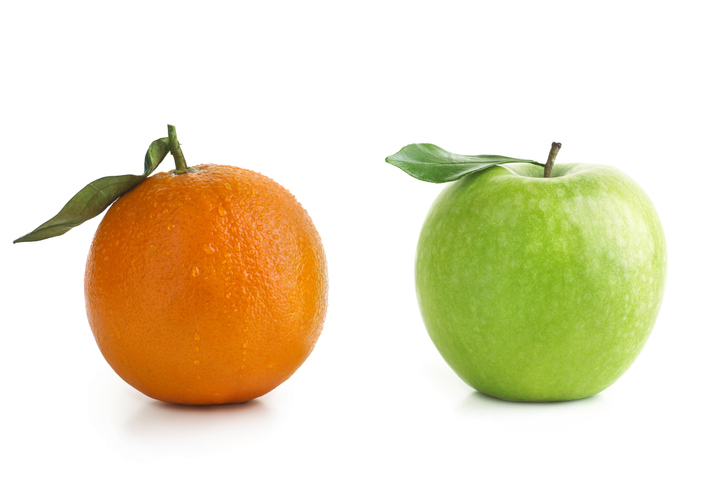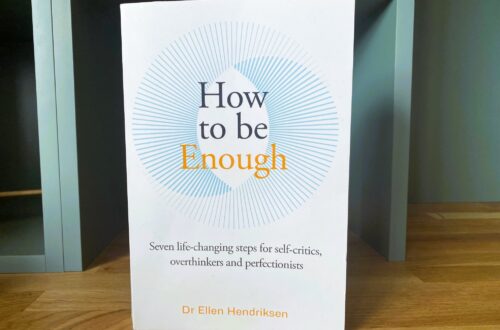
Nothing compares to you…
What to do when you feel like you don’t quite measure up to others
I know I should really give myself a break, like many people in lockdown right now I’m in the midst of adjusting to a new way of life, figuring out this home learning business, and dealing with the uncertainty of not knowing what life will be like for us all afterwards. Yet, in spite of all the upheaval, and the fact that we are all just doing our best to get by right now, I’ve still found that whenever I’ve been scrolling through social media to see what the outside world is up to, I’ve been joined by an unwelcome but familiar presence. It’s that incessant, nagging voice of self-comparison. Its venomous words, that then start infiltrating and circulating around my mind, go something like this:
- Look at what ‘so and so’ has done today, you could have made more effort!
- Where is your creative flair? Why can’t you do something like that?
- Why do you not look that good?
- Why do you not have an amazing job like that?
I find my news feeds full of people doing lots of wonderful things with their lives like raising money for charity in tremendous and inventive ways, getting promoted, running their own businesses, being super creative, partying with friends, seeing the world etc. On the one hand it is incredibly heart-warming and inspiring to see people so happy, living their lives to the full, and being so selfless and kind. On the other hand these posts serve as poignant reminders of all the things that I don’t currently do, haven’t yet achieved, and sometimes, in all honesty, have not really even thought about doing!
The tendency to compare myself with others and my reliance on external validation is not just exclusive to this period of isolation and my use of social media. It’s been there for as long as I can remember. I was the child worrying whether my school work was as good as my peers, constantly assessing how good I was at certain hobbies by looking at what others had produced, and paying too much attention to whether I was coming top or bottom of the class. Unsurprisingly, I then became the adult looking at what salary I was being paid compared to others, what type of job I had, whether I was thought of as a knowledgeable and competent employee, and trying to suss out how experienced I was compared to the other delegates at networking events.
As I’ve journeyed through motherhood I have looked to others for reassurance that I am doing all the right activities with my children to help them to develop, that I am filling their days with all the fun and educational experiences that other parents are providing, and I have anxiously attended their medical appointments and parents’ evenings to see if they are achieving all the same milestones as other children their age. If I found that any of my children were having difficulties meeting the expectations set for them, I would instantly feel under pressure, like it was because I hadn’t done enough for them, and that compared to other parents I was lacking in some way.
Since I rarely seem to get anything positive out of comparing myself to others I wondered why I engage in this form of self-torture and why it happens so automatically when I’m interacting with other people, either virtually on social media or in person. Well, it turns out that comparison is a common human trait and we use it to discover and reinforce who we are, to assess our viewpoints, and to determine just how well we are getting on in all the different parts of our lives. We use other people, particularly those who we feel are akin to us and who represent the things we care about, to measure our accomplishments and capabilities and to make a judgement about who we are. You can find out more about the psychology behind it by reading this article by Kendra Cherry on Social Comparison Theory from Verywell Mind. Psychology Today also has articles on the topic such as this one on The Perils of Comparing Ourselves to Others written by Juliana Breines Ph.D.
It’s also important to note that comparison is not always a bad thing, it can actually be useful for letting us know how we can develop ourselves and gives us something to aim towards. For example, if we know we are not the top of the class or the best performer and we really want to get better, then we can put in the work that is necessary to make an improvement.
Now that’s all well and good, but what about when those feelings of inadequacy hit? How do you get past the sting of comparing yourself to someone and then feeling like you are ‘below par’? Here are some helpful techniques that I have used to stop the voice of self-comparison in its tracks and to pull myself away from the spiral of self-pity.
Stop feeding the negative inner chatter! Get off of social media.
The posts and images that you are seeing may be adding fuel to an already low mood and a difficult situation so press pause for a while and take a step back from it all.
Literally bury your phone or laptop somewhere and do something else that whisks you away from the mere snippets that you see of other people’s lives and brings you straight back into your own life. Absorb yourself in a hobby, read a book, go for a walk, do a workout, play with the kids, run yourself a warm, relaxing bubbly bath… and if all else fails get started on the stuff you need to do around the house! You can also limit the time you spend on social media and turn off notifications so that you are not tempted to read any new posts.
Recognise that comparison can be a pointless exercise
We can be spurred on by another person’s achievements and consequently set about enthusiastically developing ourselves, trying out new activities and setting goals that positively stretch us, which is all good stuff! Unfortunately, this is not always the case and, if we are seeking some sort of validation, our comparisons can go one of two ways – we either come off favourably or we come off worse. Sure, if we come off favourably then we can rejoice in our own sense of achievement, give ourselves a pat on the back, and be thankful that life isn’t as bad as we deem someone else’s to be. However, I’m thinking it is probably not a good thing to rely on feeling good about yourself at another person’s expense! Then there is dealing with the dismay of coming off worse, where you beat yourself up for not matching up to someone else’s standards and you find yourself getting irritable, resentful, and jealous. There appears to be no real winners here!
I think it is also helpful to remember that definitions of success and personal standards are relative and subjective anyway – your ideal life is not my ideal life, my measure of success is not necessarily your measure of success, and what floats my boat may not float yours!
Acknowledge your own successes and strengths
This is ultimately about being secure in who you are and not depending on others to validate that you are doing well, are taking the ‘right’ path and are worthy. We are all unique and bring different personalities, backgrounds, experiences, skills, and strengths to the table. So identify and recognise what you are good at, the expertise and experience you are have gained so far, what works for you and what doesn’t, and then try and capitalise on those things every day. How can you make the most of all of your strengths and bring them into your day?
Also, get into the habit of celebrating and acknowledging every success you have had (no matter how small it may seem to you). Note down the achievements that you are most proud of and then make a record of all the things you have managed to accomplish each week. Read this back to yourself every now and then (it really does help to provide you with a confidence boost). I also sometimes ask myself ‘What one thing could I do today that would make it a success?’ and this helps me to set a goal for the day that is totally doable (if I’ve been realistic…) and helps to bring me a sense of accomplishment.
Do you really know the full story?
This is not to take away or dismiss other people’s achievements, successes and positive actions. I find that rooting for others, thanking them for their nuggets of inspiration, their brilliant ideas, and wishing them well can make you feel good even if you are a little envious. However, we have to remove the rose-tinted glasses for a moment and give ourselves a reality check whenever we see these idealised images of family life, exotic holidays, gorgeous beach bodies, etc. They are just the carefully selected ‘best bits’, brief moments from a whole day. Let’s not ignore all the other hours that were in that day and all the effort that was made to get that snap! Just to put this out there so you are under no illusion… I can confidently say that I need several takes to get a photo I am happy with and there is almost always some mini-drama playing out behind the scenes!
We often know very little about the daily struggles and battles that other people are facing. Since we don’t know all the ins and outs of people’s lives our perceptions of how well they are doing can be completely skewed. Instead of becoming entangled in what we think life is like for other people compared to what it is really like for us, let’s put the focus back on ourselves and create some goals that are suited to our own personal circumstances by asking:
- What is going on for me right now? What is my reality?
- What is most important to me?
- How do I feel right now about each area of my life?
- Where do I want to be in 12 months’ time and what do I need to do to get there?
Be kind to yourself and get curious!
Seeing that post or talking to that person may have brought up something within you that feels uncomfortable. Notice it – what kind of thoughts were going through your mind? Write them down and look at them on the page (this can also help you to distance yourself from them a little). Then, take a moment to ask yourself:
- Why was I comparing myself to that person? What led me to do that? This is about identifying why you were engaging in the comparison in the first place – Were you seeking validation? Are you trying to measure your abilities in some way? Were you after some inspiration?
- What has sparked those feelings within me?
- How can I address this? Is there something in my life that I want to change, improve or do?
It’s also important to show yourself some kindness. All this beating yourself up is not going to help. Believe me I’ve wasted way too many hours doing that! You are only human and, for better or worse, we all compare ourselves to others. Acknowledge your feelings and accept that you are doing the best you can, with everything you have and know at this moment in time.
Take a deep breath and give yourself a hug (this really is lovely to do!) Put your hand on your heart and tell yourself that you are more than enough as you are right now. Speak to yourself with the same compassionate words that you would use if you were comforting your dearest friend or a child who was experiencing the same sorts of emotions.
Having some ready-made affirmations to say to yourself when those thoughts start to arise can also be helpful, such as:
- I am capable
- I am beautiful and unique
- I have my own successes
- I am resilient
Ditch the word ‘should’
I want to ban this word since it tends to crop up so much when we are comparing our situations or actions to others and our negative inner voice starts yapping away:
- I should be doing this
- I should be doing that
- I should be earning this much by now
- I should be a top, high flying, businesswoman
Well, OK, says who? Where has that pressure or influence come from? Why does that perspective matter more than your opinion of yourself and what you are currently doing with your life?
Try removing the word ‘should’ from your vocabulary for a while and turn that focus right back on the things that you want out of your life.
Ask:
- What do I really want to do?
- What could I do? What are my options?
- What are my values and how can I bring them into my life some more?
Express gratitude for all of the good things that are in your life right now
When I’m caught up in comparing myself with others I can lose all sense of perspective, focusing too much on things that I don’t have or don’t currently do, and forgetting about everything that is already good in my life. Keeping a gratitude journal is a practice that I’ve seen advocated time and time again by therapists and wellbeing experts. Get into the habit of writing down the things you are grateful for each day. It can be anything – a person in your life, cherished objects, things in your environment, qualities you have, people who help and support you, your pets – it’s your list to create. After just a few days of doing this you’ll find yourself recognising the good things that are present in your day and will see how even the small things in your life, especially those things that we usually just take for granted, can bring you lots of happiness.




